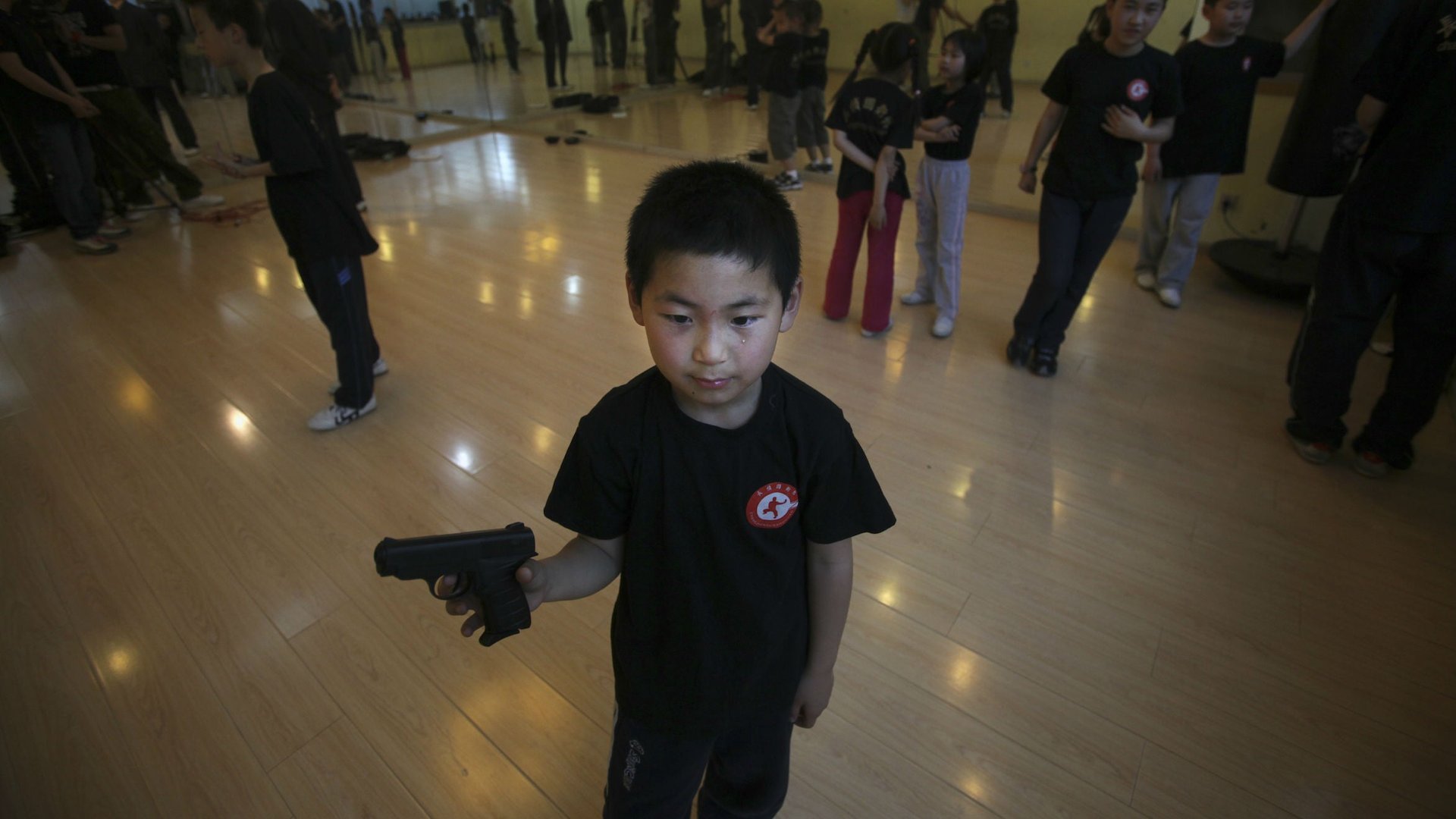Just because China has a ban on guns doesn’t mean its schools are safer from attacks
Is China’s track record on gun control and safety really better? Since last week’s deadly school shootings in the US, it’s become en vogue to compare the attack with another one that took place, eerily, on the same day. Twenty-two Chinese children were injured by a man with a knife, but no one was killed. And China, people are fond of pointing out, has a ban on guns.


Is China’s track record on gun control and safety really better? Since last week’s deadly school shootings in the US, it’s become en vogue to compare the attack with another one that took place, eerily, on the same day. Twenty-two Chinese children were injured by a man with a knife, but no one was killed. And China, people are fond of pointing out, has a ban on guns.
But make no mistake: China isn’t a model to be emulated. Gruesome attacks on primary school students in China have been occurring with some regularity over the past two years. Almost 20 Chinese children have been killed and about 50 others wounded by men wielding kitchen knives, cleavers and hammers in seven mass attacks since 2010. Of the 22 children slashed on Dec. 14, several lost fingers and ears, state media Xinhua reported.
In fact, the reasons China still struggles with these attacks is a cautionary tale for other countries. In China, there’s little focus on mental health, so more potential offenders slip through the cracks. The latest attacker, a 36-year-old, was described as mentally ill, according to Xinhua (Chinese media reports that the attacker believed the end of the world was near). In 2010, local media reports said the first offender in a string of copycat stabbings of children was also mentally ill. (Police later claimed he was not, and he was executed after a short trial.) An estimated 100 million Chinese have varying degrees of mental illness, a 2011 report by China’s State Council said, but China has a fraction of the number of mental health professionals compared to developed countries.
China might ban guns, but the government has been slow to stop these knife attacks. In 2010, outgoing premier Wen Jiabao identified vaguely-described ”social tensions“ as the root cause. But growing inequality, land seizures by the government, and out-of-control housing prices remain issues. The government is more concerned with the appearance of stability by censoring news of further attacks on children. Chinese reporters accused officials of witholding information about security and the nature of the attack on Dec. 14, comparing it with the amount of information surrounding the Connecticut shooting. One said, according to Xinhua, “There are so many details about the US incident on the internet while our officials are trying every means to block information and refuse interviews.” Pledges for continued better security at schools, equipping teachers with pepper spray and martial arts training have largely been soundbites.
One Chinese blogger compared the two attacks:
From the look of it, there’s no difference between a “developed” country and a “developing country.” And there’s no such thing as human rights. People are the most violent creatures on earth, and China, with its ban on guns, is doing pretty well!
But as Michael Moore, who explored a school massacre in 1999 in the documentary film Bowling for Columbine, wrote this summer, the prevalence of guns doesn’t explain everything:
There are plenty of guns in Canada (mostly hunting rifles)—and yet the annual gun murder count in Canada is around 200 deaths. In fact, because of its proximity, Canada’s culture is very similar to ours—the kids play the same violent video games, watch the same movies and TV shows, and yet they don’t grow up wanting to kill each other. Switzerland has the third-highest number of guns per capita on earth, but still a low murder rate.
Strict Chinese control on guns has meant that fewer people in China die in a single mass attack than in America. But that doesn’t mean all is well. If China had guns, it might be more like America—not like Canada or Switzerland.